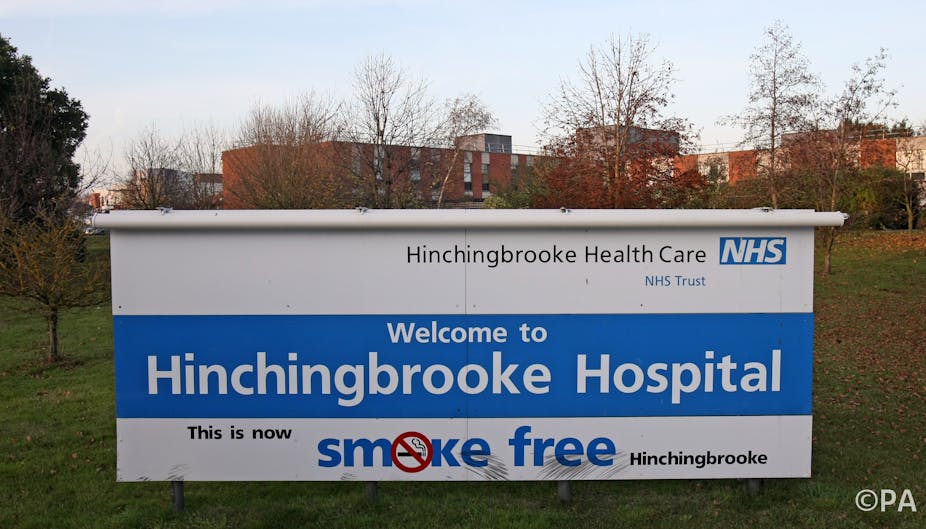Healthcare group Circle has announced that it plans to withdraw from its contract to run Hinchingbrooke Hospital in Cambridgeshire, three years into a deal that was supposed to last ten years. The company blames the A&E crisis, the payment tariff for acute care, the Care Quality Commission and its forthcoming critical report on the hospital – and probably the weather and local traffic congestion as well.
Beyond the PR fluff
Circle’s announcement looks cynically timed to use the current problems in the NHS as an excuse to exit what has been, from the outset, an albatross around its neck. Despite a welter of positive marketing hype about what a wonderful job it had been doing and how it has transformed a “basket case” hospital into “one of the best hospitals in the UK,” the truth has been that from day one a loss-making and probably unviable NHS acute hospital has still struggled to survive under private control.
In fact, Circle has run up £5m in losses on the contract so far, and that is the threshold at which a break clause allows it to exit early without penalty. I think the prospect of even more financial losses for its shareholders is the real reason for the company pulling out now.

The cheerleaders
Some newspapers and politicians have been eager cheerleaders for Circle and its supposedly innovative staff-mutual ownership model (it seems to me to be a pretty conventional venture capital-funded outfit dressed up as a social enterprise). They have lauded its leadership and bought the marketing hype, and by extension argued that the best way to improve performance in the NHS might be to give whole tracts of it the Circle medicine treatment – private sector management, commercial acumen, robust financial control and so on. That case looks rather dodgy now the one privately-run NHS acute hospital has fallen by the wayside.
Circle seems to have done some things right at Hinchingbrooke. It engaged clinical staff, particularly doctors, in leading the organisation. It focused on service improvement and transformation, and on the quality of care. But those are all things you can see being done, any day of the week, by lots of good NHS organisations.
What it tells us
There is nothing magic about the private sector which makes axiomatically better (or worse) at running things than the public sector. On both sides of this polarised debate the ideologues chanting “two legs bad, four legs good” or vice versa tend to drown out more reasoned voices, and the research evidence. That evidence suggests rather prosaically that it’s not whether you are a private or public sector management team that matters, it’s how good you are at management.

For the people of Cambridgeshire, the future of Hinchingbrooke Hospital now looks, paradoxically, quite good. In the short term, the Department of Health and the NHS Trust Development Authority are forced to bail it out, and take it off Circle’s hands. In the longer term, the new chief executive of NHS England, Simon Stevens, has already made it clear that he thinks the acute care sector is already too centralised, and that the way funding is distributed and staffing is organised needs to change to give district general hospitals like Hinchingbrooke a sustainable future. So as Circle pulls out, another chapter for the hospital begins.

